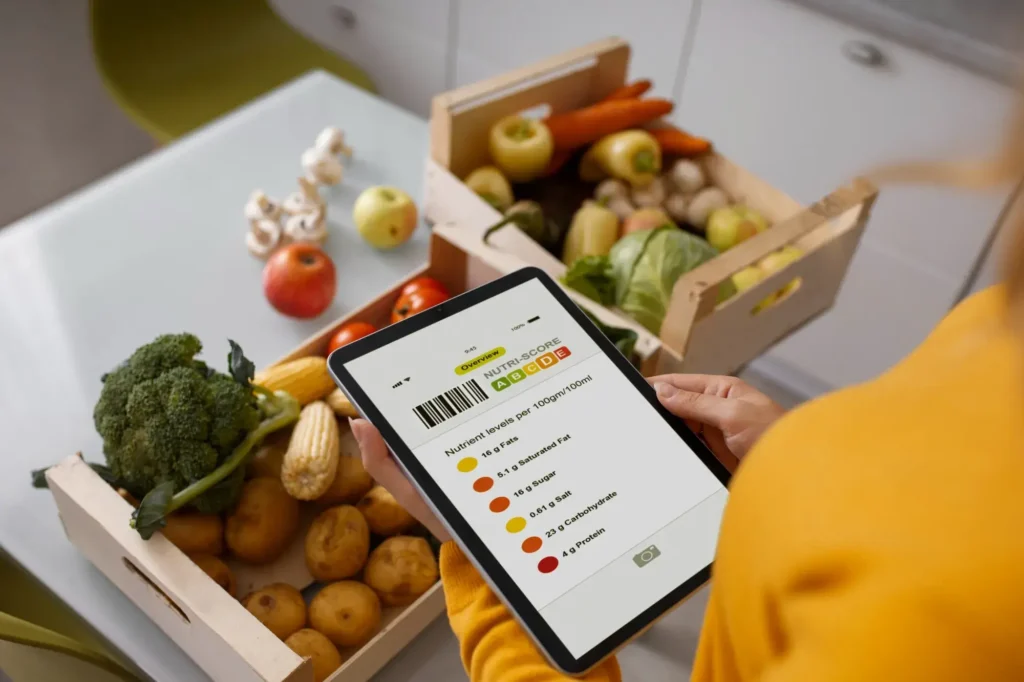If you want to “get in shape once and for all” in 2024, it makes sense to start by keeping track of the calories you consume and burn. However, there is a debate about whether calorie counting is a beneficial method for improving health and losing weight. Some experts believe that calorie counting may lead to unhealthy food restrictions and promote eating disorders. On the other hand, some experts argue that counting calories is a practical and successful strategy for weight loss.
What Are Calories?
Calories are essentially a measure of the energy content in food and drinks. You can find the calorie count listed on the packaging as “kcal.”
Is It Necessary to Monitor My Calorie Intake?
When we consume more calories than we burn, our bodies store the excess as fat. If this happens consistently, we may gain weight. Being aware of the calorie content in what we eat and drink, and keeping track of our intake, can help us manage our daily consumption. However, there are other ways to adjust our eating habits for weight loss, such as controlling portion sizes and choosing the right types of food for our meals.
How Many Calories Should I Consume for Weight Loss?
According to recommendations, an average person should consume:
- 2,500 kcal per day for men
- 2,000 kcal per day for women
To lose weight, aim to reduce your intake by around 600 kcal per day:
- 1,900 kcal for men
- 1,400 kcal for women
How to Count Calories?
Calorie counting can be a bit tricky, but some general guidelines can help you get a better idea of how many calories you’re consuming each day. Here are a few simple ways to help you keep track:
1. Be Mindful of Ingredients Listed on Labels
It’s important to pay attention to the serving size listed on the food label, as it may not always match the amount you consume. For example, a bag of chips may list the serving size as 1 ounce, but you might eat the entire bag, which could be 3 or 4 servings. This means you would need to multiply the calorie count listed on the label by the number of servings you ate to get an accurate picture of your calorie intake. Additionally, be mindful of the ingredients listed on the label. Look out for hidden sugars, unhealthy fats, and artificial additives that can contribute to excess calories and negatively impact your health. Opt for foods with minimal processing and whole, natural ingredients whenever possible. By being aware of portion sizes, reading food labels, and making informed choices about the foods you consume, you can better manage your calorie intake and make healthier choices for your overall well-being.


2. Measure Your Portions
Consider measuring your portions to help you reach your health and fitness goals. By measuring your portions, you can become more aware of how much you are eating and make adjustments as needed. It may take some time to get used to, but it can be a helpful tool in managing your diet and overall health.
3. Keep a Check
Make sure to write down everything you eat and drink each day. It can really help you stay on top of your calorie intake. Try it for a week or two to see how many calories you’re consuming, and if it helps, continue with the food diary.
Don’t forget to note down the calories in:
- The oil and spreads you use for cooking
- Any toppings or sides, like cheese or yogurt
- Sauces, like mayo and ketchup
Calorie counting can be a useful tool for weight management, but it’s not the only approach. While it provides a tangible way to track energy intake, it’s essential to consider the quality of food choices, not just the quantity. Balanced nutrition, portion control, and mindful eating are equally important factors in achieving and maintaining a healthy weight. Whether you choose to count calories or not, the key is to find a sustainable approach that works for your lifestyle and promotes overall well-being. Remember, successful weight management is a long-term commitment that involves healthy eating habits, regular physical activity, and a positive mindset.
Take the first step toward your fitness goals today!
Whether you’re a beginner or a seasoned athlete, our expert trainers and modern equipment are here to support your journey. Don’t wait – invest in your health and wellness. Reach out to us to start your membership today!



